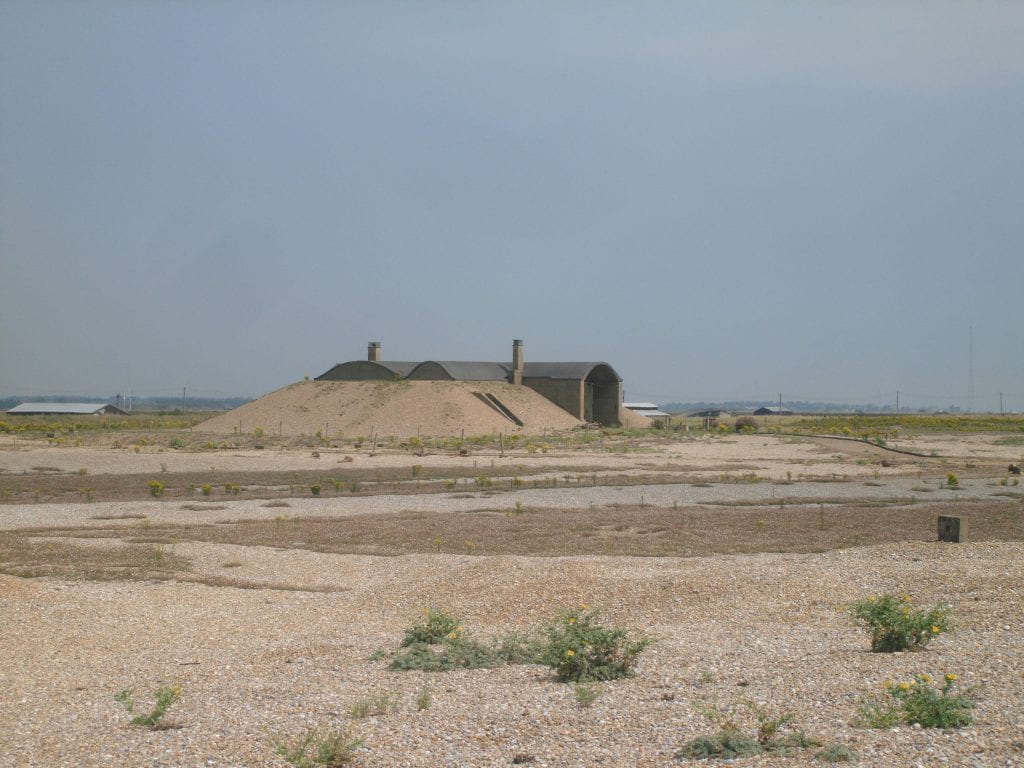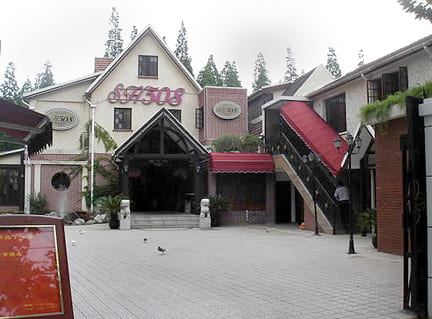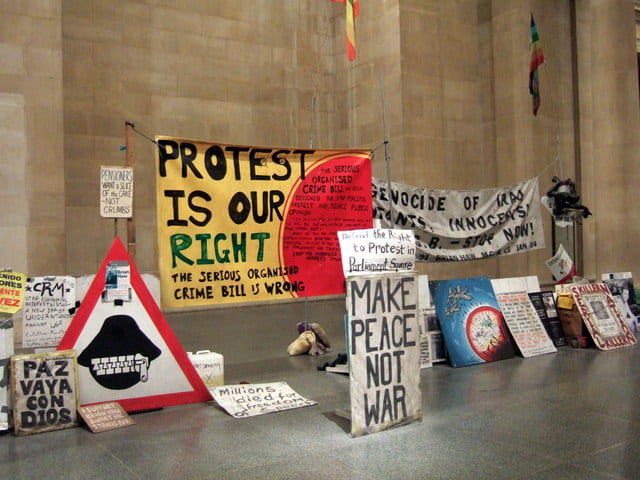To many viewers of the must-see blockbuster film of 2020, Christopher Nolan’s Tenet, the seemingly dreary Oslo Freeport upstaged every exotic locale. The Freeport is a type of warehouse, usually adjacent to an airport, where oligarchs and antique dealers can store their art beyond the scrutiny of the tax inspector and expert appraiser. But beholden to no state authority, and armed with its own private military, its neon lit rooms also constitute a jurisdictional black hole that Nolan employs to great allegorical effect (in Tenet, the villain is storing a futuristic machine that can usurp the very rules of time). Innocuous yet secretive, sensible but violent, the Freeport is a gripping backdrop because it represents a type of space that we feel intimately familiar with, yet rarely tend to think much about. This is changing.
Freeports and Special Economic Zones, Embassies and Consulates, International Airport Terminals and Liquified Natural Gas Transshipment Centers, Refugee Camps and foreign Military Bases—extraterritorial spaces have taken on a new urgency for understanding our world today. With this resurgent topicality, a growing community of scholars are searching for extraterritoriality in new places and attempting to pin down an extremely slippery concept in the process.
Art critics Hito Steyerl and Stefan Heidenreich declare a new artistic epoch of “Freeportism”; journalist Atossa Araxia Abrahamian identifies a ‘mutant sovereignty’ lurking between the privatization of the sea and outer space; and numerous historians have sought to unearth forgotten genealogies and individual responses buried in police reports and diplomatic cables. Microhistories have proven particularly good at showing the imbrication of law, diplomacy and finance, like Alison Frank Johnson’s brilliant exposé of the “enabling fiction” behind human trafficking aboard a flagged steamship of the genteel fin de siècle Habsburg Empire.
Matthew Hart, a scholar of contemporary British literature at Columbia, makes a compelling case for how literature constitutes an important place to look. In doing so, Hart also pushes us to think harder about how fiction can contribute to new histories of the state.
The extraterritorial, whether materialized in a social practice or spun into metaphor by artists and writers, gives the lie to zero-sum accounts of how humans, and the things they make, move across, under, through or above borders…The extraterritorial is more than a heuristic…It’s a speculative resource, which in its oscillation between the one and the many, the coerced and the free, has enabled some of the most brilliant artists of our young century to reimagine where we have come from, where we are, and where, in world weird and familiar, we might yet go.
First intrigued by stumbling across several uses of the word ‘extraterritorial’ in W. G. Sebald’s oeuvre, Hart found a persistent theme in the writing of J. G. Ballard, China Miéville, Margaret Atwood, Amitav Ghosh, Hilary Mantel and Kazuo Ishiguro. From speculative and post-apocalyptical fiction to historical novels, these diverse writers pushed against the Westphalian gospel of state sovereignty and seemed to weave alternative political geographies into their work. Extraterritorial: A Political Geography of Contemporary Fiction has a big and bold argument: that academics, artists, and critics have gotten extraterritoriality extremely wrong in understanding it as an exception or deviation from this Westphalian norm of modern power. In fact, “extraterritorial fracturing is one of globalization’s conditions of possibility.”. Alex Langstaff spoke with Hart about his exciting new book.
***
Alex Langstaff: You start the book by sketching out your own “historical theory” of extraterritoriality, a kind of critical crash course in the literature. How did you go about preparing this?
Matthew Hart: I wish I had an exciting answer! It was the result of several years reading and talking, systematic and desultory. I’d do the usual database searches and keyword dives— and I’d raid other peoples’ bibliographies, so that a week that began with me reading about Hugo Grotius might end up with research into the Ottoman capitulations. I also took some graduate coursework in the Department of History and the Department of East Asian Languages and Culture at Columbia, filling in gaps in my knowledge about political history and international relations. Finally, as colleagues and students got to hear about the project, they would recommend new things for me to read. That’s one of the things I miss now, having been working from home for months: the intellectual sociability that’s an irreplaceable part of hanging around a university.


The ruined Atomic Weapons Research Establishment laboratories on Orford Ness, an important location for W.G. Sebald and one that Hart visited in 2011 researching the writer. Credit: Matthew Hart.
AL: Italian thinker Giorgio Agamben has become synonymous in recent years with the study of extraterritorial spaces. Refreshingly, you’re skeptical about this. Why?
MH: Agamben’s work is extremely useful if you want to understand the abstract topology of extraterritorial spaces, which often follow what he calls the logic of the “inclusive exclusion.” Despite that, I’m unconvinced by the formalist aspects of decisionist political theories that identify sovereignty with, as Carl Schmitt puts it, “he who decides upon the exception.”
What such theories gain in theoretical clarity they lose in descriptive power. They don’t require us to say anything about the substantive content of laws and executive orders. What’s more, that formalism goes along with a thin historical understanding of how both states and extraterritorial geographies work. As I show in the book, extraterritorial spaces aren’t just sites in which states exert violent authority; they’re also spaces in which they relinquish, pool, or disaggregate sovereign power.
Finally, and this is where I know some of my friends on the left part company with me, I’m committed to a version of social democratic politics in which the state retains a legitimate redistributive and egalitarian function. Agamben’s political philosophy is basically hostile to all kinds of constituted power. That’s something I find politically disabling, as well as empirically and theoretically unconvincing.
AL: By idolizing the Westphalian ‘sovereignty-territorial ideal’, you say, we have misunderstood globalization as a crisis for the nation state: transnational practices are actually much more of a continuity, often initiated by the state. Why do you suppose novelists have often been better at registering this misunderstanding than many cultural critics and scholars?
MH: Well, I should first say that lots of scholars have also avoided that problem. There’s a long list of scholars—most notably, Keller Easterling, Eyal Weizman, and Giovanni Arrighi—whose work I depended on in developing Extraterritorial’s analysis of state and globalization.
But I do think novels can provide surprising insights into political geography. Sometimes, that’s because they’re working in speculative genres that begin by imagining a whole new secondary world, which gives an innovative writer a chance to reimagine the whole set of relations between political power and its spatial expression. Sometimes it’s because, as with Hilary Mantel’s historical fictions, they take us back to a world before the modern state system took shape. And sometimes it’s because the novel allows us to think about political power in ways that, as in Amitav Ghosh’s oceanic Ibis trilogy, exceed any single state or empire. Novelists aren’t obliged to respect the norms of international relations theory.
AL: Discussing the speculative fiction of China Miéville, and then the post-apocalypticism of Emily St. John Mandel and Margaret Atwood, you notice that “extraterritorial settings” can function as “a literary technology for making the world differently while acting like that difference is ordinary”. This banalization of radical change, of course, is also what makes extraterritorial zones so attractive to the powerful. Do you think the writers you consider are conscious of this parallel in technics between their craft, and statecraft? Does it irk them?
MH: I think some of them are conscious of that parallel: Miéville, for instance, and Atwood, both of whom have their own analyses of the ideological functions of art and culture. But my deeper instinct is to say that these are different kinds of banalization.
Speculative fiction often asks us to submit to what Miéville calls “the weird of genre”—to enter into worlds that are both strange and systematic, which differ from ours, but which nevertheless follow their own norms. Extraterritorial spaces such as the “pleeblands” in Atwood’s Oryx & Crake are great at manifesting that literary effect and playing with the tension between the routine and the extraordinary. But that’s different, morally and technically, from how states obfuscate the operations of power within an extraterritorial zone such as the immigration control area of an airport.
AL: The work of artists like Mark Wallinger, or Ruti Sela and Mayaan Amir, are threaded through the book. What do artworks allow you to say about extraterritoriality that other sources don’t?
MH: I think they help me do two things. They suggest that the patterns I’ve observed in contemporary fiction also have implications for other media. In that sense, they represent a small wager on the generality of my book’s conclusions about how aesthetic objects mediate geographic experience.
More narrowly, some of those very directly illustrate problems in political geography—which is to say, they illustrate it without recourse to allegory or metaphor. An installation like Wallinger’s State Britain, which he staged right on the edge of the protest exclusion zone that extends 1km outwards from Parliament Square, really helps clarify the spatial disaggregation of criminal law within states such as the United Kingdom.
AL: I was struck by how many of the writers you examine have experienced extraterritoriality, and want to communicate this: Ballard in the Shanghai International Settlement, Sebald in postwar exile, or Mantel and Ghosh in their feverishly researched archives. Did you want to get at this ambient, ‘lived’ quality behind formalist readings of their prose?
MH: One of the central premises of the book is that extraterritoriality isn’t just a geographic phenomenon; it’s just as much a property of persons. It was important, for that reason, for me to spend time with novels that bring out that personal aspect, showing how an author or character’s experience of, say, time or national identity might be changed by living in an extraterritorial space or bearing the privilege of extraterritorial immunity from local laws. That’s why, for me, if the book has a tutelary spirit, then it’s Ballard, who lived the first few years of his life in the semi-colonial playhouse of the International Settlement, then endured the dark side of that history in a Japanese detention camp, and finally experienced his adult life in England as a species of exile from his own supposed homeland.

The Tudor-style Ballard family home in Shanghai in 2007, now a luxury restaurant. Credit: Andy Best.
AL: What is your next project? Does it continue any of this?
MH: I’ve just finished an essay that develops some of Extraterritorial’s arguments about the proliferation of enclave zones within 21st-century cities, this time taking on the racist myth of the Muslim “no-go zone” in Britain and France. And I’ll eventually finish a long-delayed article on Trevor Paglen, an artist and experimental geographer whose various projects raise really provocative questions about the relationship between extraterritoriality, state secrecy, and liberal democracy. But my next book is probably going to be totally different. It’s a work of family history, as much as cultural criticism or theory, about the Kellino family of performers and film-makers, to whom I’m related through my mother and whose careers bridge the transition from vaudeville to cinema. I can’t get going with it, though, until this pandemic ends and I can bury myself in various archives in London and Los Angeles.
Matthew Hart is Associate Professor of English and Comparative Literature at Columbia University. His other publications include Nations of Nothing But Poetry (Oxford U. P., 2010/2013). He is Founding Co-Editor of the Columbia University Press book series, Literature Now and the past President of the Modernist Studies Association.
Alex Langstaff is a PhD candidate in modern history at NYU.
Featured Image: The Oslo Freeport in Tenet, Warner Brothers Pictures 2020.






